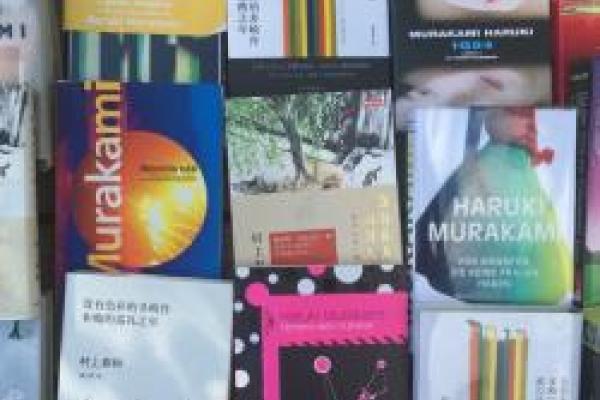
The Institute for Japanese Studies presents
"Translate, Ignore, or Cut Altogether? Translating Polyphony and Polygraphy in Haruki Murakami’s Works"
Dr. Anna Zielinska-Elliott, Senior Lecturer in Japanese
Head of Japanese Language Program
Boston University
Flyer: Anna Elliott Flyer.pdf
Abstract: Haruki Murakami has been a very popular writer for over 35 years, his fame unprecedented for a Japanese writer and his work translated into fifty languages. Murakami is known for his own style of Japanese language: he often uses words and expressions from other languages, and makes some of his characters speak in dialect, or in katakana instead of kanji. Relying mainly on examples from Murakami’s recent works, the talk analyzes practices used by different translators in rendering such language. It also discusses the question of the often-extensive cuts and abridgments in the English translations, showing that, compared to other language versions, sometimes the English versions appear closer to being adaptations than translations.
Bio: Educated in Poland and Japan, Anna Zielinska-Elliott is a translator of modern Japanese literature into Polish. Best known for her translations of Murakami Haruki, she has also translated Mishima Yukio and Yoshimoto Banana. She is the author of a Polish-language monograph on gender in Murakami’s writing titled, Haruki Murakami and the Actors in His Theater of Imagination (2015), a literary guidebook to Murakami’s Tokyo, and several articles on Murakami and European translation practices relating to contemporary Japanese fiction. Zielinska-Elliott teaches Japanese language, literature, and translation studies at Boston University, where she is head of the Japanese language program.
